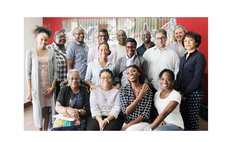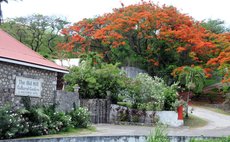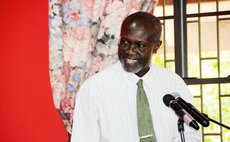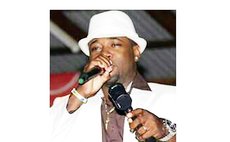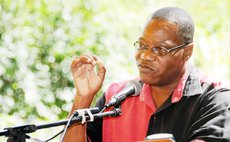The Reggae identity and sub-culture
In America once you are black and from the Caribbean and do not talk like Americans people assume you're from Jamaica. Now, if you have dreadlocks you are more than likely to be deemed a Jamaican. Well, this stereotyping, good or bad, is even more pronounced when one considers Reggae music.
Reggae has graduated from a beat or genre to a sub-culture just like Rock music was synonymous with hippies or Country and Western to Nashville-Tennessee and Texas or Blues to Mississippi. But it is even more significant as it does not apply to only a place but represents a belief, a way of life or philosophy.
If Rap music, fancy cars, luxurious parties, 'bling' and basketball are other such sub-cultures enrooted in the projects in New York and other US cities then Reggae music is most potent.
Many people feel that without the philosophy of Haile Selassie, Rastafari and ganja and musical messengers such as Bob Marley, Peter Tosh, Bunny Wailer, Jacob Miller and others of the 70s era, Reggae would have been just another musical beat to dance to such as Soca, Cadence, the short-lived Spouge from Barbados, Rock and Roll or Soul.
But what made Reggae, an offshoot from Ska –music, move up to such great prominence as one of the most important and fast growing musical genres of our time? I suggest it's all about the profound message and rebelliousness against the 'Babylon system" when young people were trying to find themselves, their heritage and 'Africa-ness'. Ganja and the spiff were promoted as a ritual of this rebelliousness and search for self.
However, it is interesting to note that two things remained even after 40 years, and that is there is a common belief that to be accepted as a Reggae artiste one must sport the dreadlock, smoke weed and speak the Jamaican lingua.
Ironically the individualities once enjoyed in the region in particular are slowly disappearing almost to the point that being a musician is to be Jamaican or a Reggae singer. Jimmy Cliff (aka Niambashi) one of the greatest Reggae artistes ever is a distinct exception to that rule although he is Jamaican. Jimmy never promoted dreadlocks or ganja as a Reggae brand throughout his prolific career. In fact, quite ironically, he found the Muslim religion in his search for a faith.
Bankie Banks of Anguilla, who made a huge impact with a few years on the music scene, though sporting the dreadlocks, adopted a sort of British – American accent even up to today.
However, it always amazes me how many of our Dominican artistes have totally erased their 'Dominica-ness' to pose as Jamaicans. Whether it is a marketing tool for acceptance, an inferiority complex or otherwise our singers are completely bought, that if you are singing Reggae then the package includes dreadlocks, a particular mode of dress, gait, and the Jamaican accent is a must; Jehovah God is rechristened Jah- an overnight choice, and weed becomes a good option.
It is not going to end anytime soon as all our leading Reggae acts have 'Jamaican-ised' themselves from the late American- based Prince I-tal Joe, to Nelly, Trevy, locally based Colton -T and Nasio Fontaine, an international Reggae artiste who I think is the best thing after Bob Marley, but one would never think he is a Dominican from Bagatelle based on his lingua.
The question is: can't we be ourselves and be great? Do we have to sound or pretend to be someone else to 'make it'? Or is it just a false perception or really a marketing ploy to make us more palatable to the world?
If Jimmy Cliff, Shaggy, Bankie, Lucky Dube and Gentleman have been successful with their brand of Reggae without the dreadlocks and, in the case of the latter three, without the Jamaican lingua, then I think we can also be what we want to be and carve our own niche in the Reggae market without losing our Dominican identity. Who knows something about our tone and expressiveness in language (example Rihanna) may open new doors of acceptance for other Dominican Reggae artistes.
